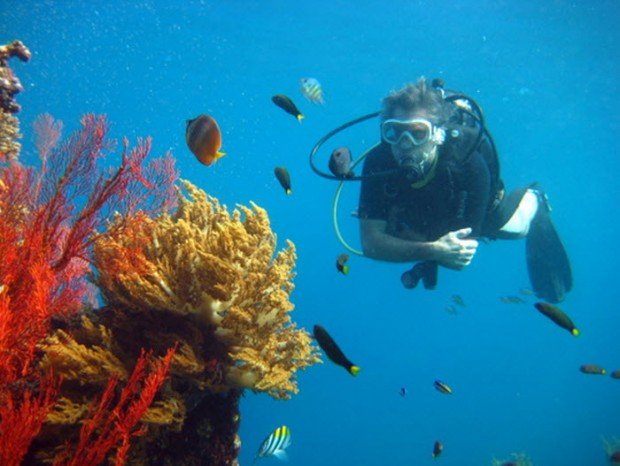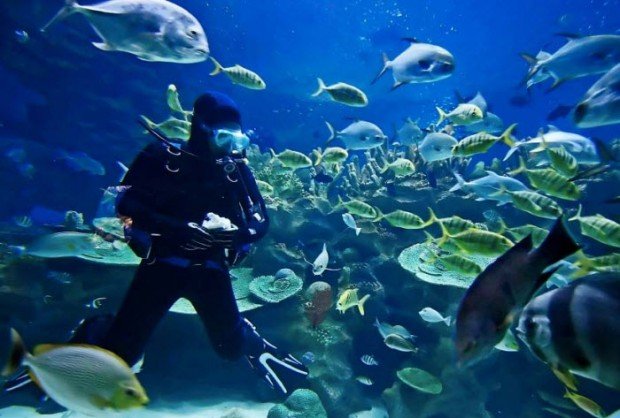What is the Difference Between Technical Diving and Recreational Diving?
Not all dives are created equal. Here are the major differences between recreational and technical diving, and which certifications you’ll need to do both.
If you’re new to the world of diving, you’ve probably heard the terms recreational diving and technical diving used throughout your training and research process. But is one better than the other? And what separates the two?
In plain terms, technical diving is an advanced form of diving that utilizes special gas mixtures, as well as additional equipment, to dive deeper than recreational diving certifications allow. How much deeper? An open water, recreational certification from PADI allows you to reach a maximum of 130 feet or 40 meters. A technical diving certification; however, will more than double that depth, extending your reach beyond that limit—sometimes, to 350 feet or beyond.
Is technical diving better than recreational diving?
Not necessarily. The majority of the world’s reefs will be found in relatively shallow water. So, if your primary interests are reef habitats, corals, and reef fish, a recreational dive certification will serve you well. However, if you’re after deep water targets—like many shipwrecks and geologic features—a technical certification should be considered. The tradeoff? Depth comes at a price.
Technical dives require more gear than recreational dives (check out some of the differences in technical dive gear). Because of their increased depth, technical divers must prepare twice as much gear, on average. In addition to wet suits, dry suits, SPG’s, tanks, regulators, dive computers, weights, and BCD’s, technical divers often pack rebreathers, lift bags, backup masks, backup dive computers, backplates, a harness, and wings. And, much of this equipment needs to be compatible with trimix in addition to oxygen and nitrox.
Additionally, technical divers must carefully plan decompression stages or risk severe ramifications to their health. Risk of decompressions sickness—always a concern when diving—is heightened exponentially during technical dives. So, too, are nitrogen narcosis and oxygen toxicity.
To reduce those risks, technical divers typically use a trimix of oxygen, helium, and nitrogen. Because helium in particular is expensive and rare in certain parts of the world, planning for technical diving can involve pre-ordering it in advance of a dive trip.
Should I get certified as a technical diver?
The answer depends on where you want to dive. Deep wrecks in North America’s Great Lakes; the filming locations for many of Cousteau’s documentaries; the nuclear testing grounds of Bikini Atoll; and the Yucatan Cenotes of Mexico are all renowned dive sites accessible to technical divers.
These locations come with their own, unique risks, though. They often come association with strong currents, low light, or enclosed spaces. In contrast, recreational dives require less gear and less preparation, leaving you free to enjoy the world beneath the waves without the additional risks of a technical dive location.
In short, a technical dive certification is not necessary for most divers, though it is a worthy goal that allows the most ambitious among us to access the deepest depths sustainable by the human body. Make no mistake: technical diving is an extreme sport. If you want to go deeper, you’ll need to call James Cameron to borrow a submarine.
Recreational diving, on the other hand, is a more accessible and less expensive option for those who want to dive, but don’t necessarily need to push the limits of their mind and body.


